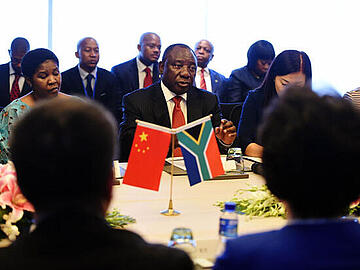Project
China in Africa: Exploring the Consequences for Economic and Social Development
Start of Project: 01.04.2021 — End of Project: 31.03.2024

Since the turn of the millennium, as part of its “going out” policy, China has heavily expanded its engagement in Africa. This is visible across the African continent and holds for bilateral trade relations, overseas investment, development aid, and the immigration of Chinese workers. While economic theory suggests net benefits of increased competition and global integration, Chinese activities are frequently criticized for their potential adverse consequences on African countries and their citizens.
This research project aims to shed new light on the economic and social effects of China’s engagement in Africa along all key dimensions - trade, investment, aid, debt, and migration - and also to get a better understanding of how China’s presence is perceived by African citizens. While most previous research has focused on cross-country regression analysis and case studies, we provide novel empirical evidence by using rigorous econometric approaches at the level of subnational regions and individual citizens, which is complemented by experimental and survey-based methods. Given that up to 90 percent of the world’s poor will live in Africa by 2030, understanding the impacts of China’s engagement is of key relevance from a development perspective.
Our results will also inform European decision makers on how to adapt their trade, investment and development policies to China’s rising presence in Africa. We will also address African audiences through conferences and workshops where we can build on existing networks of the project partners. Several new data sets generated in the project will be shared with the research community in order to trigger follow-up analyses.
To pursue the research agenda effectively, Kiel Institute and University of Goettingen, which combine excellence in all the topics covered by the project, will collaborate with Chinese and African partners to incorporate region-specific knowledge.

















